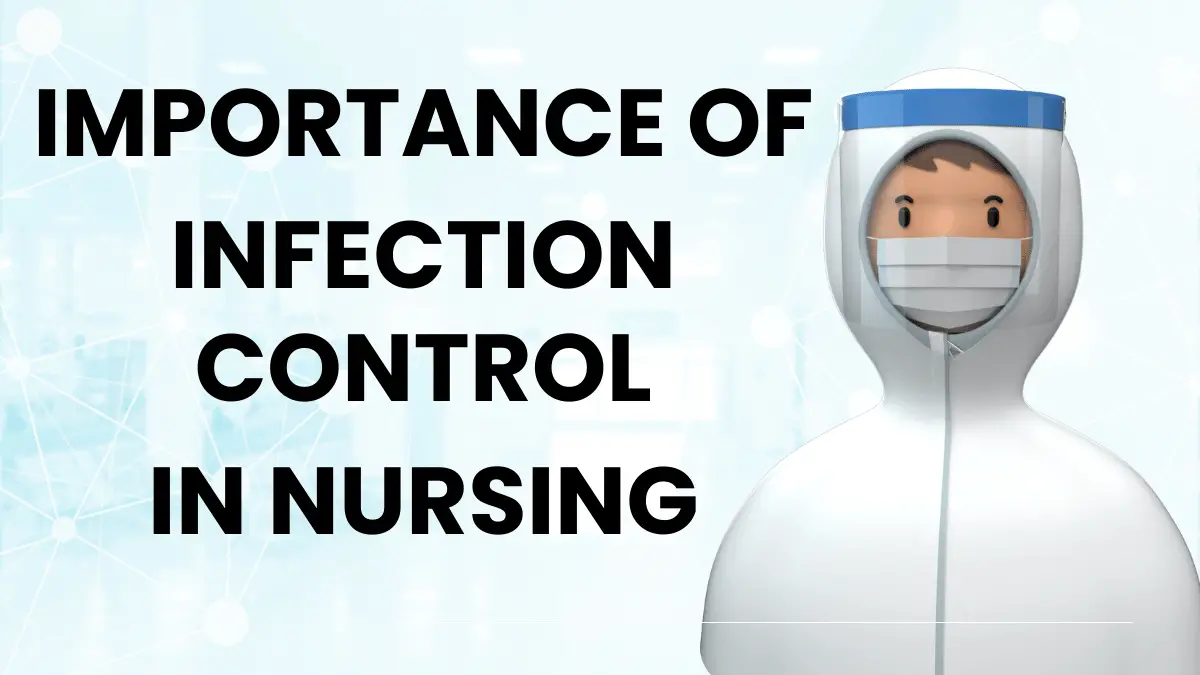Infection control stands as a cornerstone in the realm of nursing, playing a pivotal role in safeguarding both patients and healthcare professionals against the spread of infectious diseases. As frontline caregivers, nurses are at the forefront of infection prevention and control efforts, employing various strategies to mitigate risks and uphold the highest standards of patient safety. This comprehensive guide delves into the significance of infection control in nursing practice, highlighting its multifaceted impacts and the indispensable role it plays in healthcare settings.
Understanding Infection Control
The Fundamentals of Infection Prevention
Infection control encompasses a broad spectrum of measures aimed at preventing the transmission of infectious agents within healthcare facilities. From basic hand hygiene protocols to sophisticated sterilization techniques, these interventions are designed to minimize the risk of healthcare-associated infections (HAIs) and promote optimal patient outcomes.
The Impact of HAIs
Healthcare-associated infections pose a significant threat to patient safety, prolonging hospital stays, increasing healthcare costs, and, in severe cases, leading to mortality. Nurses play a crucial role in mitigating these risks through diligent adherence to infection control protocols, thereby reducing the incidence of HAIs and enhancing overall healthcare quality.
Data Insights: Trends in Healthcare-associated Infections
| Year | Total HAIs Reported | % Reduction Compared to Previous Year |
|---|---|---|
| 2018 | 12,500 | -5% |
| 2019 | 11,800 | -6% |
| 2020 | 10,200 | -8% |
The Role of Nurses in Infection Control
Promoting Hand Hygiene Compliance
Hand hygiene stands as the cornerstone of infection control practices, serving as the first line of defense against the spread of pathogens. Nurses are tasked with promoting strict hand hygiene compliance among healthcare staff, advocating for the use of soap and water or alcohol-based hand sanitizers in accordance with established guidelines.
Implementing Standard Precautions
Standard precautions form the basis of infection control in healthcare settings, encompassing a set of practices designed to minimize the risk of transmission of infectious agents. Nurses are responsible for implementing these precautions consistently, including the use of personal protective equipment (PPE) such as gloves, masks, and gowns when caring for patients with known or suspected infections.
Managing Infectious Outbreaks
During infectious outbreaks, nurses play a pivotal role in coordinating response efforts, implementing isolation protocols, and providing frontline care to affected patients. Their expertise in infection control is instrumental in containing the spread of disease within healthcare facilities and safeguarding the well-being of both patients and staff.
The Importance of Education and Training
Continuous Professional Development
In the dynamic landscape of healthcare, ongoing education and training are essential for nurses to stay abreast of the latest developments in infection control. By investing in professional development opportunities, healthcare institutions empower nurses to enhance their knowledge and skills, ultimately strengthening the frontline defense against infectious diseases.
Empowering Patients and Families
In addition to healthcare professionals, patients and their families play a crucial role in infection control efforts. Nurses serve as educators, equipping patients with the information and resources they need to prevent infections, adhere to prescribed treatments, and advocate for their own health and safety.
Conclusion
In conclusion, infection control stands as a fundamental aspect of nursing practice, encompassing a diverse array of strategies aimed at preventing the spread of infectious diseases in healthcare settings. By prioritizing hand hygiene, implementing standard precautions, and advocating for continuous education and training, nurses play a pivotal role in safeguarding the health and well-being of patients and healthcare professionals alike. As we navigate the ever-evolving landscape of healthcare, the importance of infection control in nursing cannot be overstated, serving as a cornerstone of patient safety and quality care.

